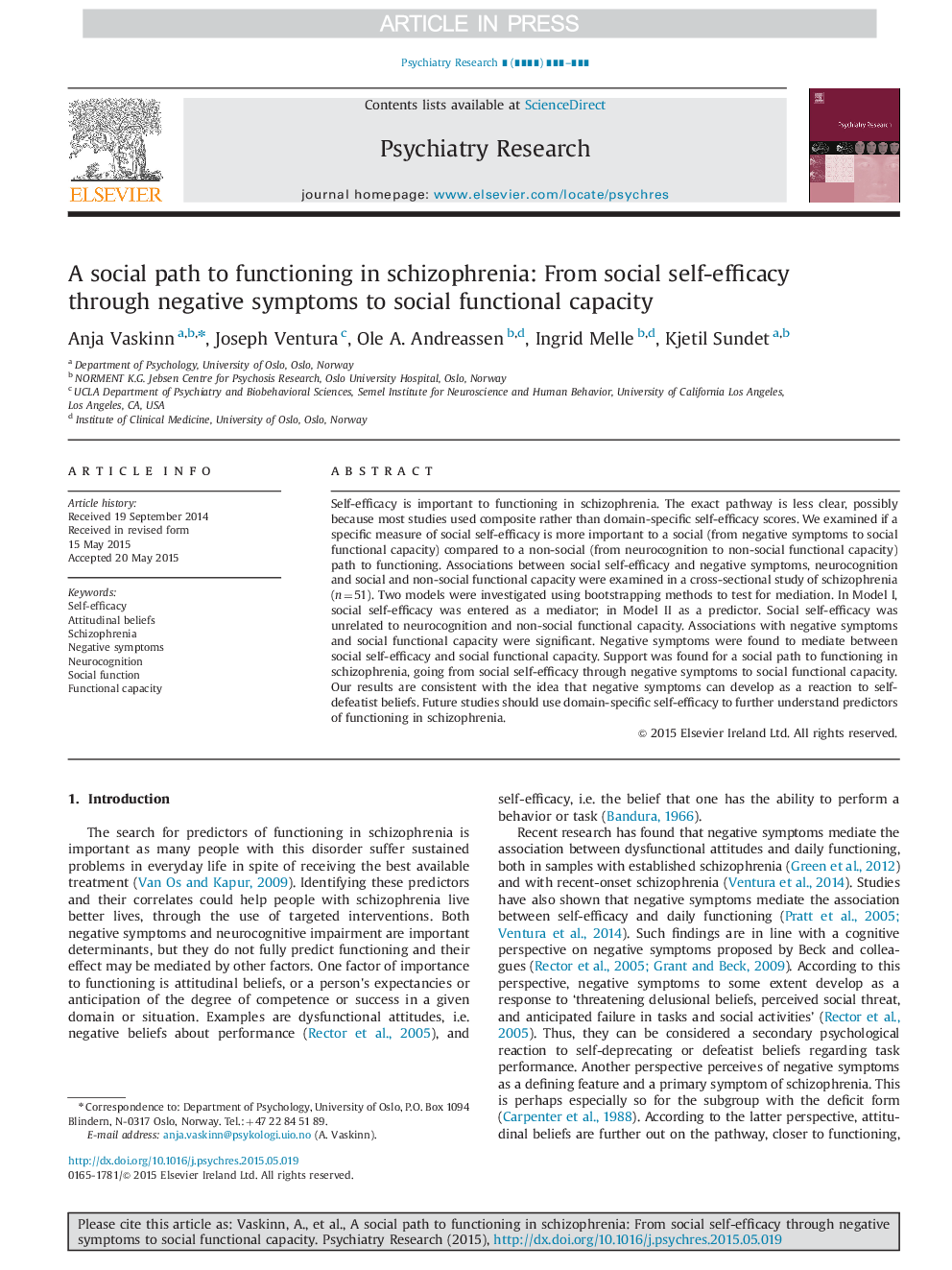| Article ID | Journal | Published Year | Pages | File Type |
|---|---|---|---|---|
| 10303745 | Psychiatry Research | 2015 | 5 Pages |
Abstract
Self-efficacy is important to functioning in schizophrenia. The exact pathway is less clear, possibly because most studies used composite rather than domain-specific self-efficacy scores. We examined if a specific measure of social self-efficacy is more important to a social (from negative symptoms to social functional capacity) compared to a non-social (from neurocognition to non-social functional capacity) path to functioning. Associations between social self-efficacy and negative symptoms, neurocognition and social and non-social functional capacity were examined in a cross-sectional study of schizophrenia (n=51). Two models were investigated using bootstrapping methods to test for mediation. In Model I, social self-efficacy was entered as a mediator; in Model II as a predictor. Social self-efficacy was unrelated to neurocognition and non-social functional capacity. Associations with negative symptoms and social functional capacity were significant. Negative symptoms were found to mediate between social self-efficacy and social functional capacity. Support was found for a social path to functioning in schizophrenia, going from social self-efficacy through negative symptoms to social functional capacity. Our results are consistent with the idea that negative symptoms can develop as a reaction to self-defeatist beliefs. Future studies should use domain-specific self-efficacy to further understand predictors of functioning in schizophrenia.
Keywords
Related Topics
Life Sciences
Neuroscience
Biological Psychiatry
Authors
Anja Vaskinn, Joseph Ventura, Ole A. Andreassen, Ingrid Melle, Kjetil Sundet,
